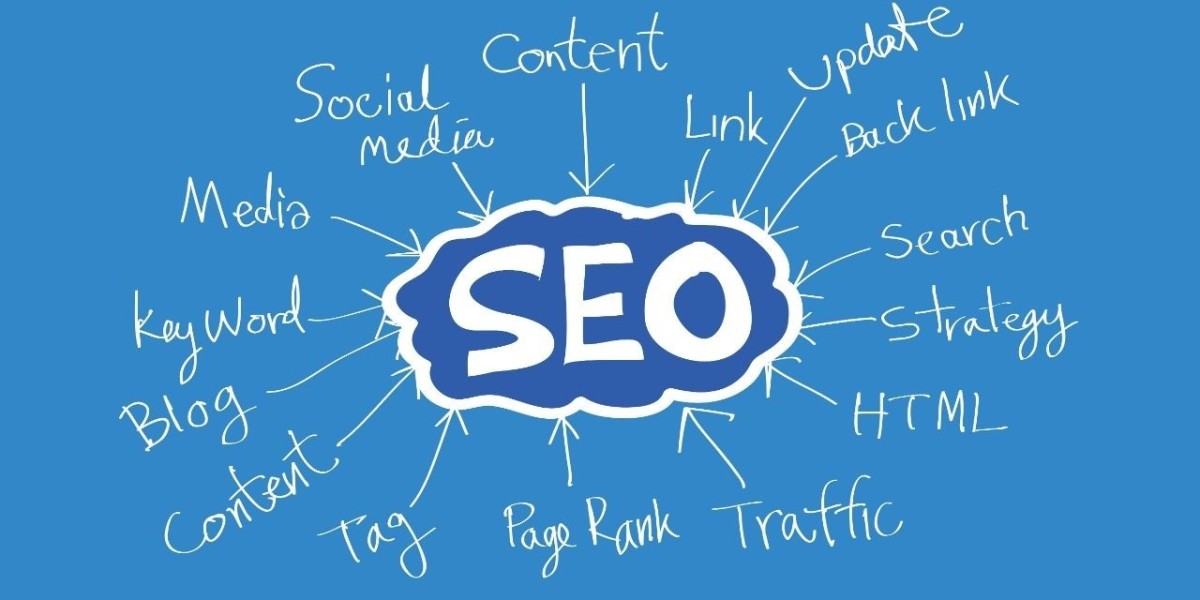The digital marketplace is evolving at a rapid pace, and for online store owners, visibility is the lifeblood of success. To stand out among thousands of products and services, mastering ecommerce SEO services and on page SEO services has become essential. While each function serves a specific purpose, their combined power lies in creating a search-friendly platform that drives organic traffic, encourages conversions, and builds long-term brand authority.
This article will walk you through how on-page optimization can be seamlessly integrated into eCommerce SEO, with detailed strategies for applying both approaches to build a robust online presence.
Understanding eCommerce SEO Services
ecommerce SEO services refer to the range of practices focused on optimizing online stores for search engines. These services go beyond just product listings and encompass the entire structure of an eCommerce website. From product page optimization to technical adjustments, every element is aimed at ensuring your site appears in relevant search results.
When implemented properly, eCommerce SEO focuses on:
Keyword-optimized product titles and descriptions
URL structuring for product categories and filters
Technical site performance (mobile responsiveness, page speed)
Secure browsing with HTTPS
Schema markup for products and reviews
However, even the best eCommerce SEO strategy can fall short if on page SEO services are ignored. That’s where the real integration begins.
What are On Page SEO Services?
on page SEO services involve optimizing individual web pages to improve their visibility and relevance in search engine results. This includes content, meta tags, internal linking, header hierarchy, image optimization, and more. On-page SEO ensures that each page sends the right signals to search engines while providing valuable content to visitors.
These services serve as the internal structure of your website. They make your content understandable, accessible, and appealing not just to Google but to users. When paired with eCommerce goals, on-page SEO transforms product pages, category descriptions, and even blog content into high-performing traffic assets.
Bridging eCommerce SEO with On-Page Tactics
Optimizing Product Pages
For any eCommerce site, product pages are the conversion engine. Integrating on page SEO services here means going beyond adding a product name and short description. Use keyword research to guide product titles, detailed descriptions, and FAQs. Add structured headers to improve readability and crawlability.
Also, don’t overlook meta titles and meta descriptions. These are crucial for click-through rates and should be unique for each product. On-page techniques ensure these elements align with your ecommerce SEO services so that each product has the opportunity to rank independently.
Internal Linking for Better Navigation
Internal linking is another powerful on-page technique. It helps spread link equity and improves user experience. Within your product and blog pages, link to related products or categories. For example, a product page for running shoes could link to a blog post titled “How to Choose the Right Footwear for Your Workout.”
This approach supports your broader ecommerce SEO services by ensuring search engines can efficiently crawl your website, while also keeping users engaged longer.
Content Optimization for Collections and Categories
Many online stores forget to optimize category pages, which are powerful assets. Using on page SEO services, add well-written, keyword-rich descriptions to each category. Avoid overstuffing, and focus on naturally incorporating search phrases relevant to the category.
Integrating this strategy into your ecommerce SEO services not only improves rankings but also informs your customers about the category and guides them to the right products.
Mobile Optimization and Page Speed
Modern on-page optimization includes improving mobile user experience and loading speed. These are not optional — they’re fundamental to success in both ecommerce SEO services and on-page strategies. Ensure your layout adapts to mobile screens, buttons are easy to click, and product images load quickly.
Fast, mobile-friendly pages reduce bounce rates and help improve overall search performance. This is a core expectation in both types of services.
Using Blogs to Support eCommerce SEO
Blogs are an underrated tool in online retail. A blog post optimized with on page SEO services can rank for broader keywords and bring in top-of-funnel traffic. For example, a store selling skincare products can publish posts like “Top 5 Ingredients to Look for in a Face Serum,” linking back to specific products.
This not only supports your ecommerce SEO services by generating interest and awareness but also builds topical authority in your niche. Each blog acts as a long-term traffic source that complements your product offerings.
Creating a Unified SEO Strategy
To fully integrate on page SEO services into ecommerce SEO services, develop a strategy that treats each product, page, and piece of content as an asset. Start by:
Conducting comprehensive keyword research for all categories and products
Optimizing each page’s on-site elements: title tags, headings, and content
Ensuring internal links are logical, helpful, and SEO-friendly
Regularly updating content to reflect seasonal trends or new launches
Including multimedia (images, videos) with proper tags and compression
A unified approach doesn’t just improve rankings; it creates a smoother customer journey. Users can find products more easily, stay longer on your site, and are more likely to return.
Conclusion: The Power of Integration
Success in online retail is not about isolated efforts — it's about aligning all parts of your SEO strategy. By thoughtfully blending ecommerce SEO services with on page SEO services, you create a search-optimized, user-friendly platform that brings long-term visibility and growth.
Each product page becomes more than a listing. Each category becomes a keyword hub. Each blog becomes a gateway to conversions. That’s the power of integration — and it’s what modern online businesses must embrace for continued success.






